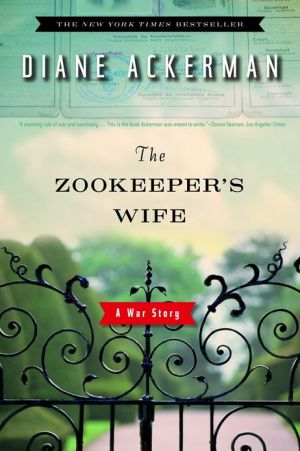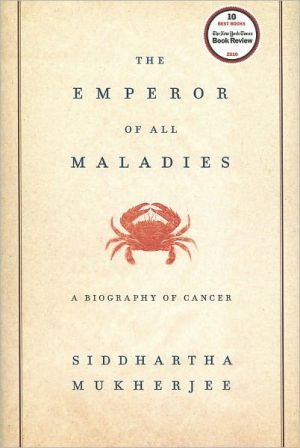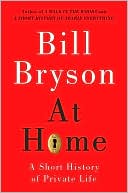The Zookeeper's Wife: A War Story
2008 Orion Book Award\ The New York Times bestseller: a true story in which the keepers of the Warsaw zoo saved hundreds of people from Nazi hands.\ When Germany invaded Poland, Stuka bombers devastated Warsaw—and the city's zoo along with it. With most of their animals dead, zookeepers Jan and Antonina Zabinski began smuggling Jews into empty cages. Another dozen "guests" hid inside the Zabinskis' villa, emerging after dark for dinner, socializing, and, during rare moments of calm, piano...
Search in google:
A true story—as powerful as Schindler's List—in which the keepers of the Warsaw Zoo saved hundreds of people from Nazi hands. The Washington Post - Susie Linfield A lovely story about the Holocaust might seem like a grotesque oxymoron. But in The Zookeeper's Wife, Diane Ackerman proves otherwise. Here is a true story—of human empathy and its opposite—that is simultaneously grave and exuberant, wise and playful. Ackerman has a wonderful tale to tell, and she tells it wonderfully.
\ From Barnes & NobleDiane Ackerman has a molecule named after her (dianeackerone), but perhaps her greatest claim to fame is that all her works are wondrously different. Whether she's writing about "sacred play," the natural history of love, or the alchemy of the mind, she manages to arrest and stimulate our senses. (And, yes, she's written a book about the senses, too. And we haven't even mentioned her verse or her children's books.) The Zookeeper's Wife is a war story unlike any other. A narrative about a Warsaw animal keeper who saves hundreds of Jews from Nazi gas chambers draws inevitable comparisons with Schindler's List, but Ackerman's artful, almost lyrical book occupies a genre of her own invention. Her narrative interlaces stories of Jan and Antonina Zabinski's improvised sanctuary with telling glimpses into the animal societies their hunted benefactors shared. Ultimately, this is a book about what it means to be human.\ \ \ \ \ D. T. MaxNature is patient, people and animals fundamentally decent, and the writer, as she always does, outlives the killer—that is the message of The Zookeeper's Wife. This is an absorbing book, diminished sometimes by the choppy way Ackerman balances Antonina's account with the larger story of the Warsaw Holocaust. For me, the more interesting story is Antonina's. She was not, as her husband once called her, "a housewife," but the alpha female in a unique menagerie. I would gladly read another book, perhaps a novel, based again on Antonina's writings. She was special, and as the remaining members of her generation die off, a voice like hers should not be allowed to fade into the silence.\ —The New York Times\ \ \ Susie LinfieldA lovely story about the Holocaust might seem like a grotesque oxymoron. But in The Zookeeper's Wife, Diane Ackerman proves otherwise. Here is a true story—of human empathy and its opposite—that is simultaneously grave and exuberant, wise and playful. Ackerman has a wonderful tale to tell, and she tells it wonderfully.\ —The Washington Post\ \ \ \ \ Publishers WeeklyAckerman (A Natural History of the Senses) tells the remarkable WWII story of Jan Zabinski, the director of the Warsaw Zoo, and his wife, Antonina, who, with courage and coolheaded ingenuity, sheltered 300 Jews as well as Polish resisters in their villa and in animal cages and sheds. Using Antonina's diaries, other contemporary sources and her own research in Poland, Ackerman takes us into the Warsaw ghetto and the 1943 Jewish uprising and also describes the Poles' revolt against the Nazi occupiers in 1944. She introduces us to such varied figures as Lutz Heck, the duplicitous head of the Berlin zoo; Rabbi Kalonymus Kalman Shapira, spiritual head of the ghetto; and the leaders of Zegota, the Polish organization that rescued Jews. Ackerman reveals other rescuers, like Dr. Mada Walter, who helped many Jews "pass," giving "lessons on how to appear Aryan and not attract notice." Ackerman's writing is viscerally evocative, as in her description of the effects of the German bombing of the zoo area: "...the sky broke open and whistling fire hurtled down, cages exploded, moats rained upward, iron bars squealed as they wrenched apart." This suspenseful beautifully crafted story deserves a wide readership. 8 pages of illus. (Sept.)\ Copyright 2007 Reed Business Information\ \ \ \ \ Library JournalThe 1939 Nazi bombing of Warsaw left its beloved zoo in ruins with many of its animals killed or wounded. Worse was to come when Berlin zoo director Lutz Heck had surviving rare species shipped back to Germany as part of a Nazi breeding program and held a New Year's Eve hunting party for German officers to finish off the remaining animals. Witnessing this horror was the zookeeper's wife, who wondered, as she recalled later in her memoirs, how many humans would die in the same manner in the coming months. As Antonina Zabinski and her husband, Jan, soon learned, the Nazis had targeted Poland's large Jewish population for extermination, and the couple, who were already supplying food to friends in the Warsaw Ghetto, pledged to help more Jews. And help they did. Ackerman's (A Natural History of the Senses) moving and eloquent narrative reveals how the zookeepers, with the aid of the Polish underground, boldly smuggled some 300 Jews out of the Ghetto and hid them in their villa and the zoo's empty cages. Based on Antonina's own memoirs and newspaper interviews, as well as Ackerman's own research in Poland, the result is an exciting and unforgettable portrait of courage and grace under fire. While some critics might feel she glosses over Polish anti-Semitism, Ackerman has done an invaluable service in bringing a little-known story of heroism and compassion to light. Highly recommended. [See Prepub Alert, LJ5/1/07; for a profile of Ackerman, see "Editors' Fall Picks," p. 32-38.-Ed.]\ —Wilda Williams\ \ \








